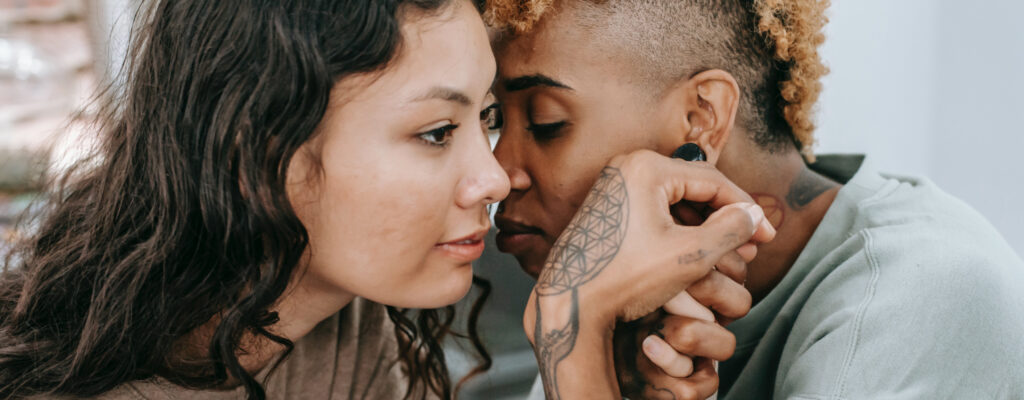
By Stella Ladikos. Mental Health Educator and Advocate.
Ever heard someone say that “you need to fall in love with yourself first, and then you can fall in love with someone else”? This is a pretty common mentality, but I honestly really have an issue with it.
It’s phrases like these that once again reinforce that you’re not good enough as you are; that something about you needs to change before you’re loveable. And I call BS on that!
This mentality can be especially harmful to people currently navigating trauma, dealing with mental health problems, or have had their confidence knocked by past relationships.
If you feel like you’re ready to dive into dating, then there is nothing you need to do to be worthy of love – you’re loveable exactly as you are, at the stage of life and healing that you’re at.
There are some important things I would like to flag for anyone navigating trauma while dating – because while you definitely don’t need to change anything about yourself, you may want to keep these things in mind to make the experience as positive as possible for both you and your partner.
Communicate with the person if something doesn’t feel right.
If the person you’re seeing is doing or saying something that is bringing back unpleasant memories or if something is making you uncomfortable, tell them! I think it can be important to distinguish that it’s not necessarily THEM as a person that’s making you uncomfortable; it’s what their actions or behaviour might remind you of.
So, for example, that conversation could look something like:
“When we have a disagreement, and you start raising your voice at me, it triggers my traumatic response, and I start to shut down. I do want to actually engage if we’re discussing something important, so I need you to please just try to stay calm and keep your voice lowered”.
If the person you’re dating is a kind, caring, and patient human being, I guarantee they will want to do anything to help make things feel safer for you.
Go to therapy.
I like to think about trauma as a scrunched-up ball of yarn. When you find the right therapist, they help unravel that ball so that all the chaotic bits and pieces are more manageable and you can gain more control over your thoughts, feelings, and behaviours.
Trauma can alter our brain’s function in multiple ways, so the first step forward is understanding ourselves more.
An important note on going to therapy while you’re dating: you do not need to disclose this to your partner! It is completely your choice to tell them or not. If you do choose to tell your partner that you’re seeing a therapist, you may want to check out this blog we wrote earlier with some tips for how to talk about your mental health when you’ve just started dating!
Be kind to yourself.
There tends to be this stigma towards dating people with ‘baggage’… Literally, everyone is dealing with SOMETHING. I mean, c’mon, it’s 2022. If you’re not managing or dealing with something, you are a robot! So be kind to yourself as you navigate this – you are no less worthy of love and happiness just because you experienced something that might still be impacting you and your relationships.
Know when to call it quits.
If it’s actually getting to be too much for you, or you feel that you’d like to be alone for a while to sort out some stuff (not because you feel that you’re a burden on the person you’re dating or that they deserve better, because remember tip #3: you are already deserving of so much love!), communicate that with the person. If you need some help navigating the conversation, you can head to this blog we wrote to help guide you have the hard convo when you’re not feeling it (without ghosting).
If it’s actually getting to be too much for you, or you feel that you’d like to be alone for a while Dating can be tough without any other stress or life factors, so navigating romance while dealing with trauma can be really tricky – to say the least. Most importantly, look after yourself. Hopefully, you’ll find someone ready to love and support you exactly where you’re at.
Stella is a Mental Health Educator and Advocate, and Founder of Meraki Mental Health Training.
